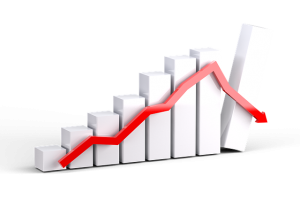 When that happened, we discussed that there is an undeniable correlation between a yield curve inversion and a recession following one-to-two years after, but we questioned the causal effect. Does a yield curve inversion today represent a lower expectation of domestic economic growth, or does it reflect the global demand for safe assets?
When that happened, we discussed that there is an undeniable correlation between a yield curve inversion and a recession following one-to-two years after, but we questioned the causal effect. Does a yield curve inversion today represent a lower expectation of domestic economic growth, or does it reflect the global demand for safe assets?
An economic expansion doesn’t just die of old age, something has to kill it. So far, that has not happened. Yet, while last summer’s concern about an imminent recession may have been a false alarm, recession isn’t indefinitely avoidable. Interestingly, the housing market has proven to be relatively resilient during recessions, with one important exception. In 2020, we argue the housing market is more likely poised to help stave off recession than fall victim to it.
All Hail the U.S. Consumer
The formal definition of a recession is two consecutive quarters of declines in the gross domestic product (GDP). In other words, a recession is a slowdown in economic activity that occurs as consumers and businesses spend less money. While every recession is unique, most recessions are broadly caused by demand shocks (i.e. financial crisis or economic downturn in a trading partner) or supply shocks (i.e. spike in oil prices or a natural disaster) to the economy.
Looking back, it’s easier to explain the causes of an economic downturn. Take for example, the 1973-1975 recession, which was largely caused by an adverse oil supply shock that quadrupled oil prices, which triggered a decline in the U.S. economy. In today’s economy, it’s likely that the cause of the next recession won’t be a supply shock, but a demand shock.
Why? Approximately 70% of U.S. economic growth is driven by domestic consumer spending. If the outlook for the domestic consumer remains strong, then the risk of recession is reduced.
Housing Market Resilience to Recessions
Does an economic recession imply a housing recession? While the housing crisis is still fresh on the minds of many, and was the catalyst of the Great Recession, the U.S. housing market has weathered all other recessions since 1980. With the exception of the Great Recession, house price appreciation hardly skipped a beat and year-over-year existing-home sales growth barely declined in all the other previous recessions in the last 40 years.
Unlike 2008, the housing market today is not driven by homeowners who are highly leveraged, as shown by the fact that the household debt-to-income ratio is at a four-decade low. Additionally, the housing crisis in the Great Recession was fueled heavily by the fact that job loss was paired with a significant share of homeowners who didn’t have much equity in their homes.
On the whole, homeowners have very high levels of tappable home equity today, providing a cushion to withstand potential price declines. Today, it’s reasonable to expect homeowners to stay where they are if the economy wavered and wait until they feel more financially confident to move, or tap into home equity for recurring expenses, or sell and pay off their mortgages, if necessary. In fact, the housing market may actually aid the economy in recovering from the next recession–a role it has traditionally played in previous economic recoveries.
This article is authored by Odeta Kushi, a deputy chief economist for First American Financial Corporation, a leading provider of title insurance, settlement services and risk solutions for real estate transactions.


